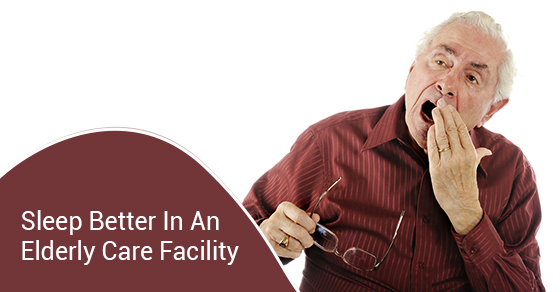8 Tips To Help Seniors Sleep Better
Posted By C-Care
The ability to enjoy deep, restorative sleep usually diminishes with age. Frequent bathroom trips and periods of wakefulness, combined with the anxiety of moving into a care facility, can increase the risk of insomnia, as well as conditions associated with poor sleep patterns such as memory loss and heart disease.

Improving sleep for seniors can help to extend life and health span. Considering that most sleep problems are associated with stress, poor sleep environment, lack of exercise and social involvement, and medications, making a few adjustments to your lifestyle and sleep environment can allow you to enjoy better quality sleep. Below are some changes to consider.
- Install low-wattage bulbs in your bedroom, and avoid the TV, computer, backlit devices (tablets and smartphones) and other sources of bright artificial light at least one hour before going to bed. This will help to boost your melatonin levels—the hormone responsible for making you sleepy.
- Make sure that your bedroom is cool, dark and quiet before going to bed. Heat, light and noise can disrupt your sleep.
- Have a consistent bedtime routine, preferably one that lets you go to bed earlier.
- Avoid using sleeping pills and sleep aids as they are not intended for long-term use, and may have adverse side effects.
- Instead, develop soothing bedtime rituals, such as meditation, playing music, or taking a bath to help you wind down.
- Maintain a healthy diet and watch what you eat just before bedtime. Plan to have your dinner at least three hours before bedtime. You can have a light snack such as yogurt or cereal and milk to satisfy hunger just before bed. But you should avoid caffeine late in the day, spicy or big meals, and alcohol and other beverages just before bedtime.
- Consider 30-40 minutes exercise sessions, especially for aerobic activities, to release chemicals that facilitate restful sleep. Dance, swim and water exercises, golf, running, cycling, and lawn bowling are all beneficial, but consult your physician before trying a new fitness program.
- Avoid stress. Use different strategies to let go of worries and thoughts, such as reading a book, listening to music, using relaxation techniques, socializing, or getting a massage.
Most healthy adults require about 8 hours of sleep at night, but the most important thing is that you feel refreshed in the morning. Most 24 hour home care facilities can help you sleep better using these tactics, as well as some personalized strategies depending on their observations. Just ask for help if you are not feeling rested enough, or you routinely feel tired during the day.

